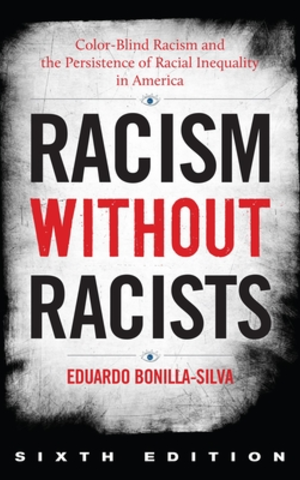
Racism Without Racists: Color-Blind Racism and the Persistence of Racial Inequality in America
- Book
- Dec 9, 2021
- #Sociology #Racism
Eduardo Bonilla-Silva's acclaimed Racism without Racists examines in detail how Whites talk, think, and account for the existence of racial inequality and makes clear that color-bli...
Show More
Number of Pages: 392
ISBN: 1538151421
ISBN-13: 9781538151426
Mentions
See All
Chris Boutté @TheRewiredSoul
·
Jun 6, 2022
- Curated in Weekly Reading List 6.6.22
This is one of the best books I’ve read about racism in America, if not the best. This book helped me realize that I’m not going insane with the mass denial of racism in America. Eduardo Bonilla-Silva did in-depth research to survey white people about their thoughts on Black people. While 99.9% of the people interviewed say they have no problem with people of a different race, the interviews show how racism shines through the cracks in what they say. Throughout the book, as I read the transcripts from these interviews, I kept saying, “Holy shit,” because I was baffled at what was coming out of their mouths.
What I’ve noticed is that people tell themselves that racism isn’t a problem while also acknowledging that it exists. For example, ask someone if they think anyone hasn’t got a job or promotion because they’re Black. Then ask them why a specific Black person didn’t get a job, and they’ll start talking about meritocracy and the person probably “just wasn’t the best candidate.” Many of the interviewees were college students, and you can see how difficult it is for people to address their privilege and how they assume Black college students at a good school are only there because of affirmative action. It’s mind-blowing.
When I read a book like this, I do everything I can to challenge it and figure out how it might be wrong or misleading. It’s extremely difficult to do that in this book because aside from the interviews, the author provides data as well. I would say that one area I’m not sold on is that not dating someone of another race is due to a form of racism. While it’s possible, I think it’s completely ridiculous that anyone believes we should be attracted to everyone equally. That’s just not how attraction works. But, there are a lot of disturbing interviews where the people discuss how their families would be furious if they dated a Black person.
This book is 100x better than Robin DiAngelo’s books, and I see people accepting it much better. Rather than sitting there calling white people racist for hundreds of pages, it uses sociology, data, interviews, and other forms of legitimate research. Everyone should read this book, and I’d honestly be curious to see what disagreements people have with it.
Christy Tidwell @christymtidwell
·
Jan 19, 2021
- Curated in Resources: Teaching About Race and Racism